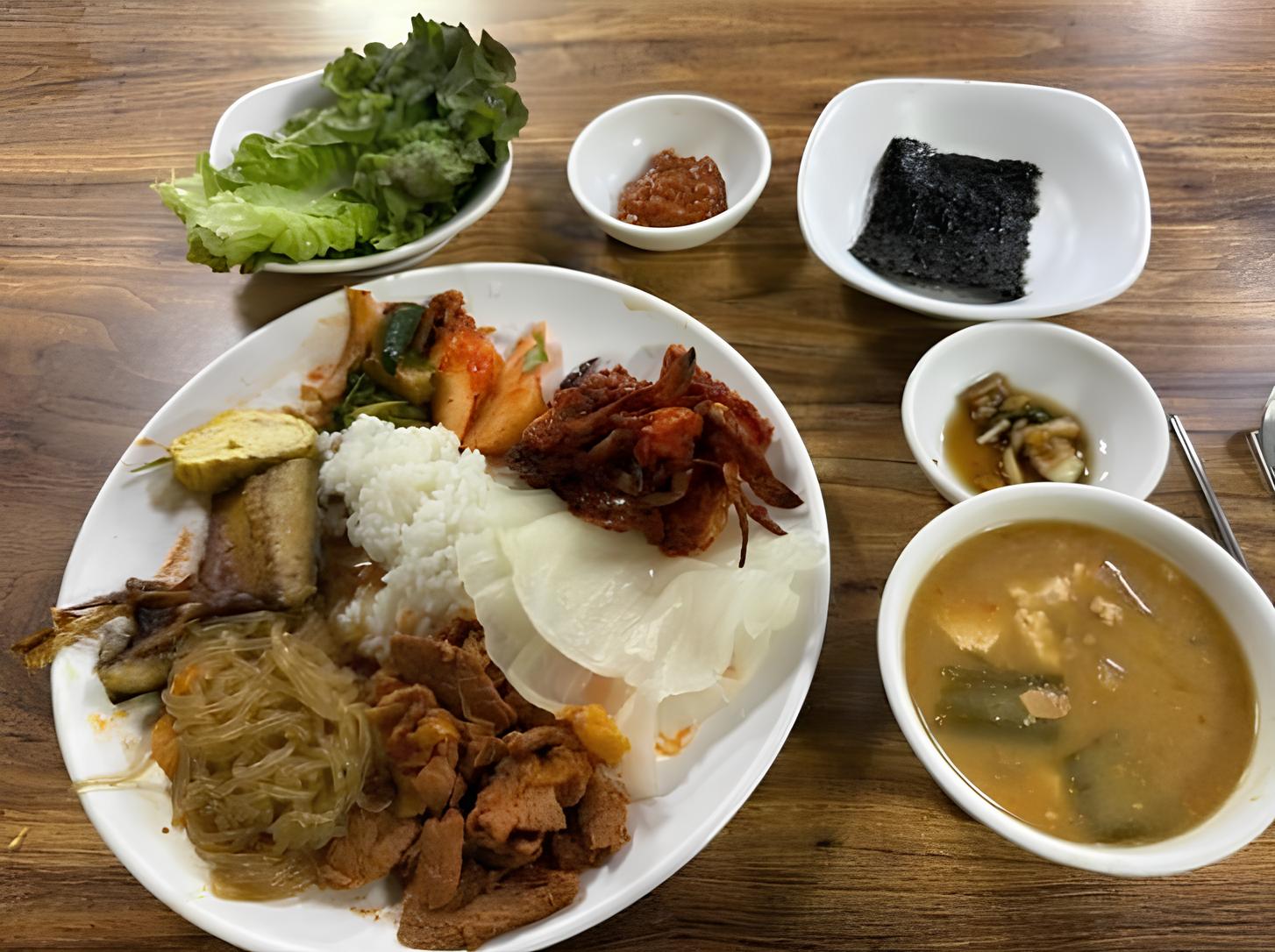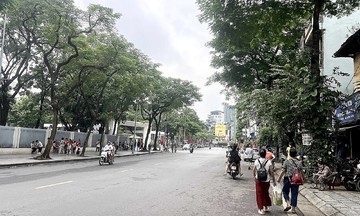"My first plate had a small portion of each dish, the second was bibimbap, and the last only had a few spoonfuls of pumpkin porridge, seaweed soup, and dongchimi (radish water kimchi). I didn't pile up my food and I ate everything," she wrote, attaching a picture of an empty plate to prove she hadn't wasted anything.
However, when the owner saw the stacked plates, he asked, "How many people are eating here?" When he learned she was dining alone, he raised his voice to the kitchen staff, "This is not right. More than 10 dishes for one person is too much." Another female staff member added, "You ate all that for only 8,000 won?"
Feeling humiliated, the woman paid for two meals and left, feeling upset.
 |
One of the three plates of food the female customer ate at the buffet. Photo: Koreatimes |
One of the three plates of food the female customer ate at the buffet. Photo: Koreatimes
The video she posted showed her offering to pay double, while the owner continued to grumble and complain. Signs in the restaurant included: "3,000 won will be added if food is wasted", "Limit two pieces of fish", and "Eat a moderate amount of bulgogi".
The incident sparked a debate about proper etiquette at buffets, which are generally understood to be "all-you-can-eat for a fixed price".
Most online users sided with the woman, saying the owner's behavior was rude and went against the spirit of a buffet. "If you can't stand people eating a lot, don't open a buffet," one person commented. Another wrote, "She didn't waste any food and finished her portion, so what's the problem?"
However, some supported the restaurant. Some argued that the low price makes it difficult for owners to balance costs if customers eat too much. "A cheap buffet doesn't mean you have the right to eat without limits," one account wrote. Another commented, "The setup and signs make this place look more like a cafeteria than a buffet."
The controversy surrounding "eating too much at a buffet" is not unique to South Korea and has caused a stir in many countries. In Germany in 2018, a man was permanently banned from a sushi restaurant in Landshut for regularly eating up to 100 pieces of sushi each visit. The restaurant owner said they couldn't make a profit with such customers, despite the "all-you-can-eat" service.
In 2021, China introduced a law to curb food waste, which included filming competitive eaters (mukbang) and advising buffet restaurants to remind customers to eat reasonably.
In the US, many buffet restaurants have a "take only what you can eat, don't waste" policy. Some even charge an extra fee if customers leave food uneaten. Some restaurant chains have refused to serve customers accused of "abusing buffet privileges".
According to American etiquette expert William Hanson, a buffet isn't about "eating without limits," but about the art of responsible enjoyment.
"Never take more food than you can eat. It's not good to deprive others of the remaining food," he said.
Nhat Minh (Koreatimes/Countryandtownhouse)












